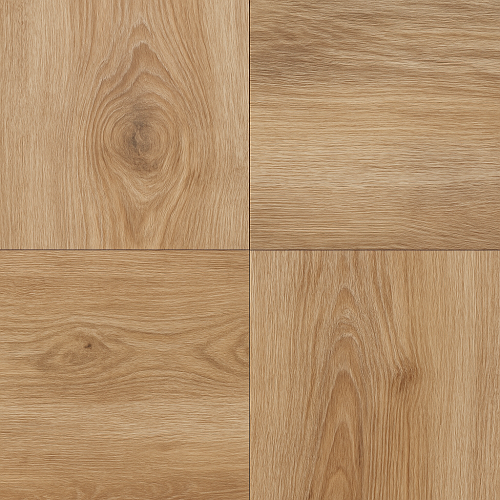Vinyl flooring has evolved into one of the most versatile and widely used flooring solutions in both residential and commercial environments. Known for its durability, design flexibility, and affordability, vinyl flooring offers a wide range of performance features that make it suitable for nearly any application.
What Is Vinyl Flooring?
Vinyl flooring is a synthetic flooring material primarily composed of polyvinyl chloride (PVC) resins, plasticizers, stabilizers, and various additives. These components are combined to form a resilient and flexible product that can replicate the look of natural materials such as wood, stone, or ceramic tile.
Depending on the construction method, vinyl flooring may be manufactured as sheet goods, tiles, or planks, each with its own installation and performance characteristics.
Types of Vinyl Flooring
1. Sheet Vinyl Flooring
- Manufactured in large rolls (typically 6–12 feet wide).
- Seamless appearance, making it excellent for moisture-prone areas like kitchens and bathrooms.
- Available in both felt-backed and fiberglass-backed formats.
2. Vinyl Composition Tile (VCT)
- Composed of a mixture of PVC, limestone filler, and pigments.
- Extremely durable and often used in commercial spaces.
- Requires periodic waxing and polishing to maintain appearance.
3. Luxury Vinyl Tile (LVT) and Luxury Vinyl Plank (LVP)
Multi-layer construction, typically including:
- Wear Layer: A clear urethane coating that resists scratches and stains.
- Print Layer: Provides realistic visuals of wood, stone, or ceramic.
- Core Layer: May be flexible (PVC) or rigid (SPC/WPC).
- Backing Layer: Provides dimensional stability and moisture resistance.
LVT/LVP are designed to closely mimic natural materials with high-definition printing and embossed textures.
4. Rigid Core Vinyl (SPC & WPC)
- SPC (Stone Polymer Composite): Uses limestone powder and PVC for a rigid, highly stable core. Excellent dent resistance.
- WPC (Wood Polymer Composite): Combines PVC with wood flour or foaming agents, offering softer underfoot comfort and enhanced sound absorption.
Technical Characteristics of Vinyl Flooring
1. Wear Resistance
The thickness of the wear layer, usually measured in mils (1 mil = 0.001 inch), determines the product’s durability:
- 6–12 mils: Suitable for residential use.
- 20–28 mils: Recommended for commercial spaces with heavy traffic.
2. Dimensional Stability
- Backing and core layers prevent expansion and contraction due to temperature and humidity fluctuations.
- Rigid core products (SPC/WPC) offer superior stability compared to traditional flexible vinyl.
3. Slip Resistance
- Vinyl flooring can be manufactured with textured or embossed finishes to meet ASTM D2047 slip-resistance standards.
- Slip-resistant surfaces are crucial in healthcare, hospitality, and public spaces.
4. Water Resistance and Moisture Tolerance
- Vinyl is inherently water-resistant; rigid core types are 100% waterproof.
- Suitable for wet areas such as bathrooms, kitchens, basements, and even some outdoor applications.
5. Acoustic Performance
- WPC products provide higher sound absorption due to their foamed core.
- SPC is denser, offering less sound reduction but higher durability.
- Acoustic underlayments can be added to improve sound insulation and meet building codes.
6. Indoor Air Quality and VOC Emissions
- Vinyl flooring should comply with FloorScore® or GREENGUARD certifications to ensure low volatile organic compound (VOC) emissions.
- Adhesive selection also impacts indoor air quality.
7. Fire Resistance
- PVC-based flooring has inherent flame-retardant properties.
- Products must comply with ASTM E648 (Critical Radiant Flux) and ASTM E662 (smoke density) for safety in commercial spaces.
Installation Methods
1. Glue-Down Installation
- Adhesive applied directly to the subfloor.
- Common for VCT, commercial sheet vinyl, and some LVT.
- Provides excellent stability and longevity.
2. Loose Lay Installation
- Utilizes the weight and friction of the flooring to stay in place.
- Ideal for temporary or semi-permanent installations.
3. Click-Lock Floating Installation
- Interlocking edge profiles allow planks or tiles to snap together.
- Floating over the subfloor without adhesives.
- Quick, DIY-friendly, and allows easy replacement of damaged sections.
4. Heat Welding (for Commercial Sheet Vinyl)
- Seams are welded with heat to create a watertight, hygienic surface.
- Essential in healthcare facilities and cleanroom environments.
Subfloor Preparation
Proper subfloor preparation is critical for performance:
- Subfloor must be clean, dry, and level within 3/16 inch over 10 feet.
- Concrete subfloors require moisture testing (ASTM F2170 or F1869) to ensure compliance with manufacturer limits.
- Wood subfloors may require underlayment for smoothness.
Maintenance and Lifespan
- Routine Cleaning: Sweeping, vacuuming, and damp mopping with neutral pH cleaners.
- Preventive Maintenance: Using entrance mats, furniture pads, and avoiding abrasive scrubbing pads.
- Resilience: Residential vinyl flooring can last 10–20 years, while commercial-grade products may exceed 20 years with proper care.
Environmental and Sustainability Considerations
- Vinyl flooring is recyclable, though recycling infrastructure varies by region.
- Manufacturers are increasingly reducing phthalates and incorporating post-consumer recycled content.
- Certifications like LEED v4 can contribute points for low-emission flooring selections.
Advantages of Vinyl Flooring
- Affordability: Cost-effective compared to natural stone or hardwood.
- Design Flexibility: Wide range of colors, textures, and formats.
- Moisture Resistance: Suitable for areas where wood or laminate may fail.
- Ease of Installation: Options for DIY or professional installation.
- Durability: High wear resistance with commercial-grade protection.
Limitations of Vinyl Flooring
- Susceptibility to Sharp Objects: Can puncture under extreme conditions.
- Temperature Sensitivity: May expand or contract if exposed to direct sunlight or extreme temperatures.
- Not Biodegradable: Environmental concerns due to PVC-based composition.
- Waxing Requirements for VCT: Some formats require regular polishing for aesthetics.
Vinyl flooring has established itself as a technically advanced, durable, and cost-effective flooring solution for both residential and commercial spaces. With innovations in SPC and WPC rigid cores, improved wear layers, and enhanced design realism, vinyl products now rival traditional materials in both function and appearance.


































